The male is the cause of 30% of infertility cases. Semen donation offers a solution for such couples, or for female patients who think of bringing up a child and creating a family on their own. GENESIS is in possession of the biggest semen bank worldwide.
Sperm donation
Sperm donation is an act of voluntary sharing of high-quality biological material when a healthy male helps out an infertile couple so that they may have their dream life.
In what cases is this the right option?
Female patients can opt for sperm donation in the following cases:
- If the partner’s semen is highly pathological along with unsatisfying outcome of in vitro fertilization.
- If a lack of spermatozoa (azoospermia) is evident in the ejaculate as well as in the testicular biopsy (an outpatient procedure is performed under local anesthetic).
- If a genetic disease of the male partner cannot be examined in the embryos.
- If a sexually transmitted disease carried by the man is impossible to eliminate from the semen.
- If the semen features chromosomal abnormalities.
- If the man has a positive blood type (homozygous state), while the woman features a negative blood type, as well as being isoimmunized (her organism produces antibodies that will be in conflict with the red blood cells of the positive blood type foetus).
For women without a male partner.
Results
At GENESIS, thanks to selfless and anonymous donors, single women or those whose partner’s semen presents a defect, are given an opportunity to make their dream of becoming parents come true.
Donors
The risk of contracting a sexually transmitted disease if eliminated by the quarantine measures applied to semen samples. A series of genetic tests obligatory for donors and medical history checks running several generations back help us prevent the risk of passing genetic diseases to the foetus.
Procedure
Semen samples are kept frozen in semen banks and undergo a 6-months quarantine to mitigate the risk of passing any diseases on. Upon 6 months, samples undergo repeated tests to make sure that the donor is not in the early stages of an infection.
According to the legislation, men over 18 years of age with a normal karyotype who prove to be mentally and physically healthy and not a carrier of any infectious disease can become semen donors. Genetic tests and a check of medical history of the donor and his family are parts of the selection procedure as well. This is done to prevent passing on of any congenital diseases.
When the GENESIS clinics specialists are sure that the semen is not infected and has successfully maintained its quality after freezing, the samples become available to use in fertility treatment, i.e. intrauterine insemination, IVF cycle or ovodonation.
What data do the patients need to provide in order to receive semen from a donor?
Their medical and gynecological history. Information on all previous treatments at other medical facilities.
Both partners must provide fresh serologies for type B and C hepatitis, syphilis, and AIDS.
Blood type and Rh factors for both partners. A signed request form and informed consent to be exposed to an assisted reproduction treatment with the use of donor semen. This document will feature characteristics of the partners and will help select the perfect donor.


